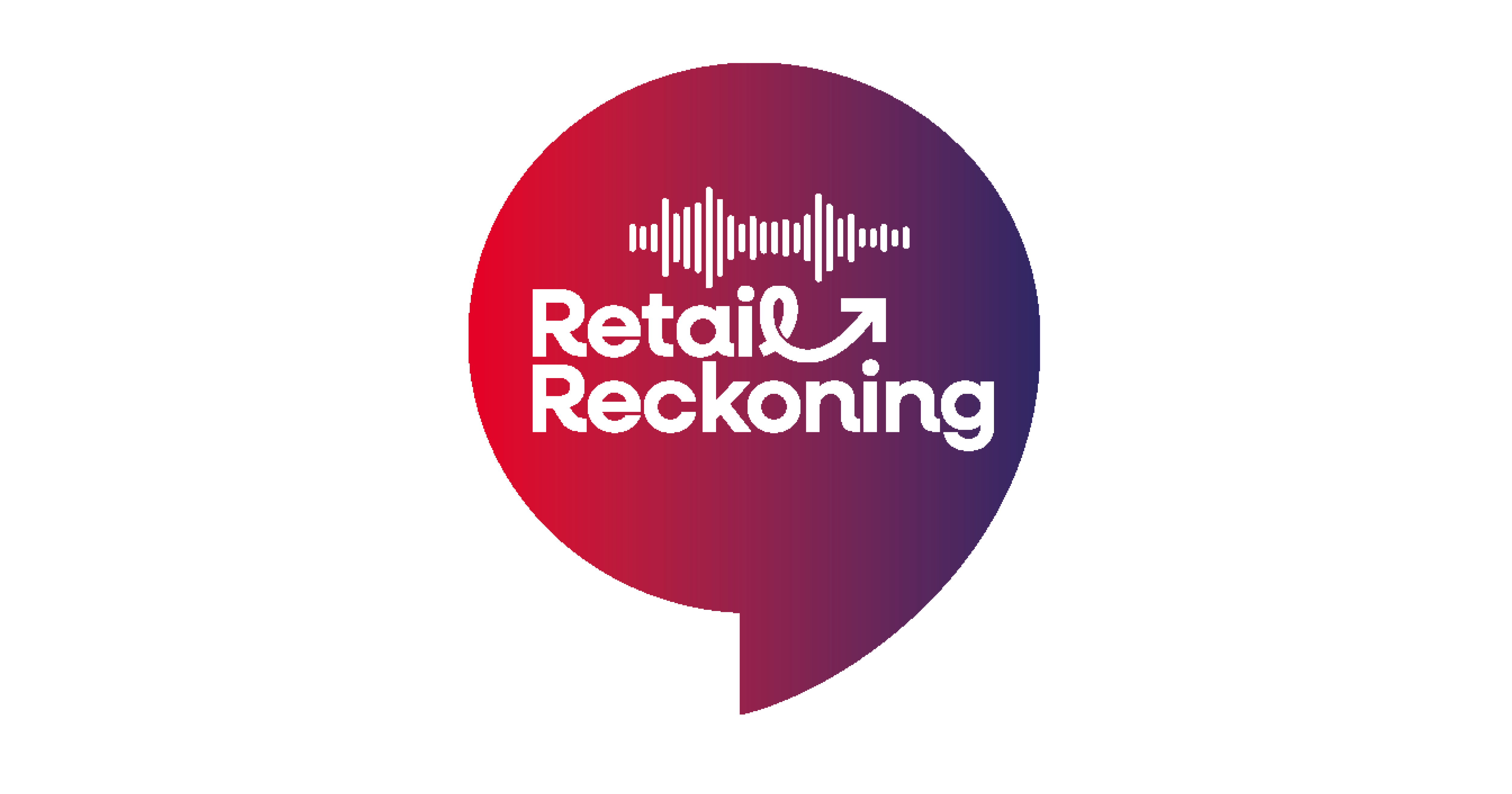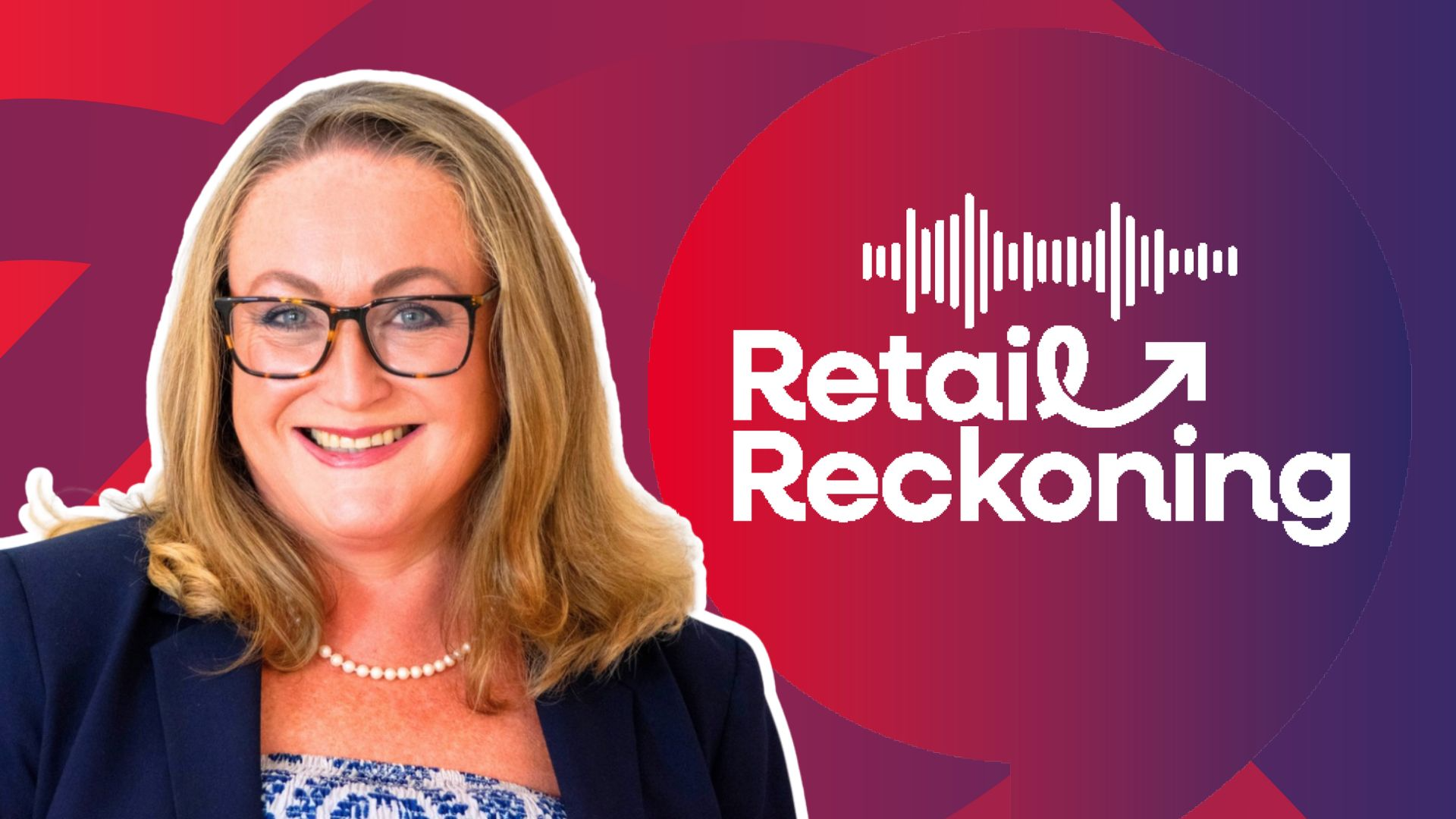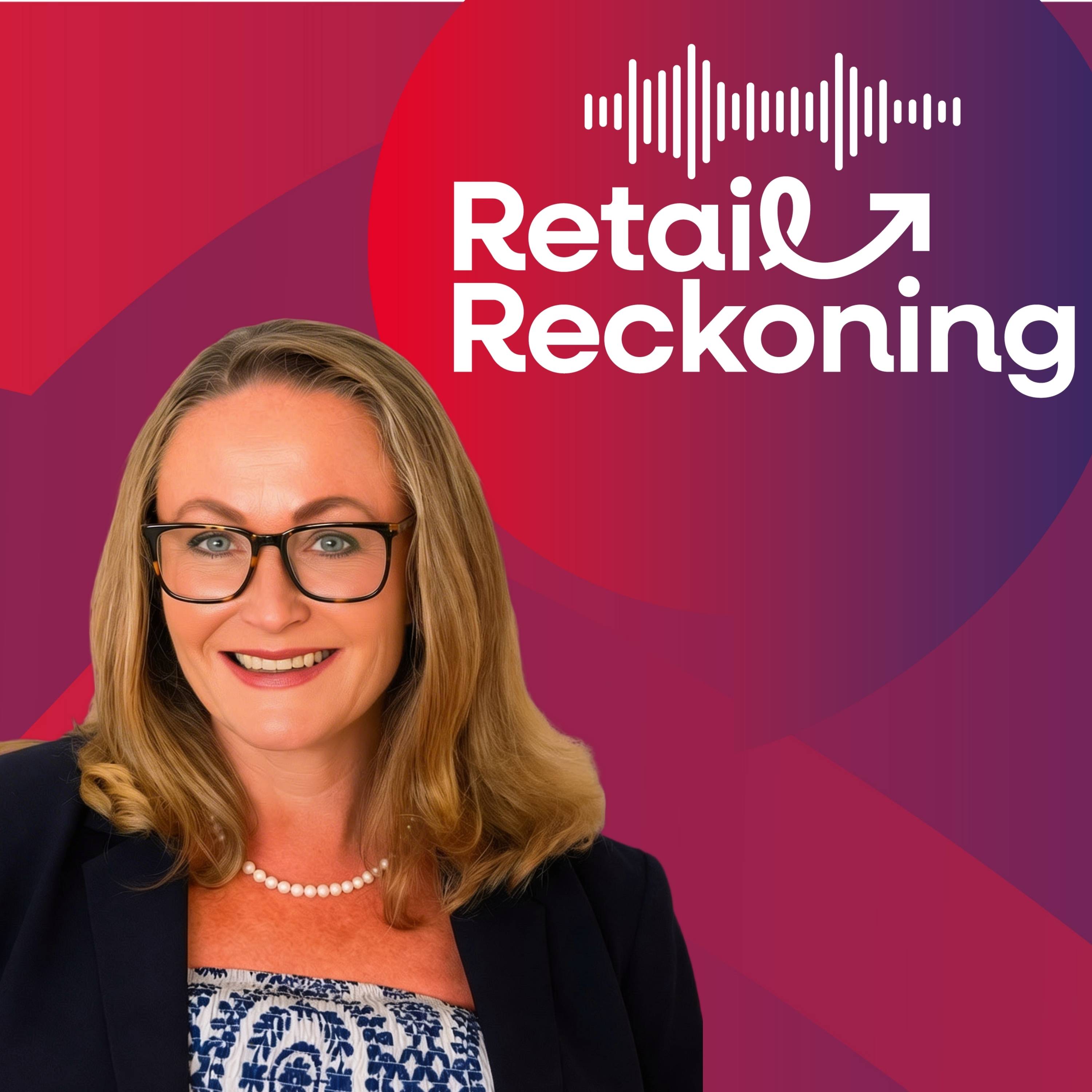Episode 5
E-Commerce Essentials: September Set-up for Black Friday Success
As we approach the critical shopping season, it is imperative to recognise that the preparation for Black Friday commences well in advance.
Hi, I'm Clare Bailey, and welcome to this new episode of "Retail Reckoning".
The salient point here is that retailers must take proactive measures now to ensure their platforms are primed for the anticipated surge in e-commerce activity. This entails not only rectifying technical issues such as bugs and broken links but also enhancing the mobile-friendliness of websites, as a significant proportion of transactions occur via smartphones.
Also, optimising email marketing strategies, managing customer expectations and driving sales.
By undertaking the essential steps offered in this episode, we can position ourselves favourably to capitalise on the lucrative opportunities presented during Black Friday, Cyber Monday, and the ensuing festive season.
Takeaways:
- Black Friday preparations commence well before November; proactive measures are essential for success.
- Ensuring your website is mobile-friendly is paramount given the high volume of mobile traffic.
- Effective email marketing can significantly enhance customer engagement and conversion rates during peak seasons.
- Retailers must adapt their strategies to avoid margin erosion while promoting products during holiday sales.
Companies mentioned in this episode:
- Barclaycard
- Statista
- Mailchimp
- Amazon
- Currys
Transcript
Black Friday doesn't wait for November, it starts now. If you're waiting to fix bugs, broken links or email flows, it is a self inflicted wound.
Are you ready for the e commerce spike and what do you need to do to be ready for Black Friday, Cyber Monday and of course Christmas. If you think about it, where we are now, how long is it till Black Friday? You've not got that long. It's less than a couple of months.
Theme singer:Yeah. Retail reckoning. Retail reckoning. No space for dusty shelves.
Clare: In: billion in:In fact, mobile first, fast loading, user friendly and in reality early setup equals early capture of spend. So getting a mobile friendly website is kind of number one priority based on those stats. But the website itself needs to be really cleaned up.
It's things like are your product pages clear? Have you got keyword titles and honest descriptions? Are the images showing scale lifestyle? Do they sell the product?
Do they actually make people say I want that I need. That is the navigation according to the customer decision tree. That's one of my biggest bugbears.
When I go on a website I might be looking for a thing and my thoughts are I'm female, therefore I want to go to women's. It's shoes I'm after, therefore I want to go to shoes.
I don't want some weird navigation that takes me through all shoes and then pick women's because I knew that woman was my first priority. Similarly with my husband, I'm not going to go to look through all shoes to go to men's. It's a bit of a back to front process.
So navigation really needs to be logical and you have to think about your customer's decision tree in how they filter themselves through. And if it's not done like that, it can irritate people sufficiently for them to bounce off the site.
You also need to consider about suggesting items, things like seasonal categories or gift guides. People who bought this, bought that can be really good, can be really irritating.
It depends because like for example, I'm not going to lie, I spend on Amazon, I buy printer paper, but I Might buy my son a lens for his camera and I might buy a pair of sandals and I don't want people that bought this bought printer paper when I'm looking at shoes. The other thing is speed. Google don't like websites that aren't fast.
So images need to be compressed, not so much that they are almost unintelligible and difficult to zoom in on and check the quality. But at the same time they need to be small enough so that they don't take ages to load.
And back to the original point, just keep testing mobile speed. There are many, many tools out there to help you do that.
I would say in early October, optimization is key to drive traffic and conversion wins when it really matters. And let's face it, Black Friday is no longer a day or a weekend.
We've got Black Month, Black Week, this and that and the other and you may not like it.
So if you aren't getting involved in Black Friday with some kind of offers, deals, discounts, Christmas wrapping, get rid of your old stock, do anything you can to optimize Black Friday.
If you're not doing it, somebody else is and they're taking money out of your customer's wallet while you're sat there being all, I don't want to get involved in Black Friday, it's an American thing. Me, me, me, me, me. But what does that get you? It gets you less sales.
And if you're not offering the deals and discounts to your customers and somebody else is, you might even lose them. I'm sorry, I do understand the principle where independent retailers don't want to get on the bandwagon, but actually my advice is get involved.
The next thing that's really important is email readiness. If you're not capturing email data, well, frankly you should be.
But if you are catching email marketing data, you've got a relatively high return in terms of click throughs. It's free if people have subscribed and it's flexible. So you can create teasers, you can do loyalty schemes, you can launch new ranges.
Last chance to buy all of that stuff is there. And actually a lot of it can be automated.
I personally use tools like mailchimp, which they're not the most sophisticated and we all use these to the best of our ability and recommend them to our clients because they work. It's about automation. Somebody's got an abandoned cart, send them a message. Oh, you were buying this. You haven't, can we help you?
Somebody looked at a product, it was out of stock, so they didn't Put it in the cart, ping them a message, it's back in stock. And you can create segmented lists with things like VIPs so regular customers, loyalty schemes, subscribers and so on.
Or you can have they've only ever bought once or they haven't bought for four months. And you can tailor the messaging. What some of the stats say from various sources is most abandoned carts are recoverable within 60 minutes.
Imagine that. That's huge for a lot of businesses.
Get your email list up and running, use it effectively, use tools that allow you to segment, reward loyalty early on, personalize the messaging and absolutely, beyond any shadow of a doubt, optimize for mobile. Think about your own behavior. How much do you do on your phone compared to your laptop or tablet or whatever?
Tablets are kind of somewhere between laptops and mobiles, I guess in terms of user interface. Thinking about E commerce, we've also got to make sure we live up to our promises. Fulfilment is everything.
You've got to plan for your peak product demand.
If you're going to make products on offer, make sure you've got full stock, you've got sufficient capacity to store them, and you've got enough resource to deal with the pick, pack and dispatch. Do you need to organise temporary staffing?
Is there a cutoff point for products whereby you can't sell anymore because you've actually reached capacity in terms of the ability to send it out? Managing expectations with customers and letting them know we've had a blazingly good Black Friday Cyber Monday or whatever it is.
Delivery may take a little longer than you would normally want to expect. We hope you can bear with us. We've been overwhelmed with orders. Be honest, it doesn't hurt.
And people will be grateful to be told that because often things just get put back. And you think, well, why has that delivery been put back? It's because they've been overwhelmed with demand.
And you think, well, at least I've got my product. Successful fulfillment on time as promised, or on the alternative time as informed leads to consumer trust.
It's simply about just managing expectations. I'd also like to focus on smart promotions for Black Friday, Cyber Monday, Christmas run up and so on.
Because I cannot bear when I see clients and retailers effectively committing margin suicide with flash markdowns and panicking.
Yeah, okay, if you're two days out of Christmas and you haven't sold all your Christmas tinsel, slash the prices or work out is the discount worth it or should I put it in storage until I can bring it out again next year because tinsel doesn't go out of style, there is a trade off. Do I cut my prices and get the cash flow back in the business or do I invest in storage and keep the product?
But promotion shouldn't be margin suicide. I think you can almost not cut prices in many cases and just create spotlights.
Put them on the homepage of the website, put them in the window of the store, highlight good sellers or put slow sellers into value packs and increase the attention to the slow sellers.
And you can incentivize over pure discounting things like free gift, free shipping, free Christmas wrapping if it's for a gift or early access is for a product launch. For me though, it's about creating clarity and perceived value over random discounting.
Because random discounting, certainly to somebody in the trade, simply screams I can't move that stock, so I've had to discount it. Whereas added value suggests I'd like to give you a gift.
And that's one of those moments of joy that I've mentioned before and it feels better to the consumer. The other thing is search readiness. Shoppers are actually googling things like eco stocking, fillers, gifts for dabs.
If you want or have an agency that can do this for you, look at SEO.
Look at the keyword research and use that in page titles, meta descriptions, alt Tags, seasonal copy FAQs, using the Google listing, your E commerce page, and so on, and making sure that you're not missing a trick because people have a high prevalence towards search at this time of year.
I actually did a media day for Amazon around their gift finder app, which was a very interesting situation whereby they'd created gifts within certain price points and so on. Work out what it is you've got to sell. Do some keyword research and look at the local monthly searches for the uk.
Look at how you can maximize the way you describe your products and images and so on so that it aligns with search effectively. The advice is to optimize now so you appear in search results in time for the peak season.
Because SEO has a lag, what you do in the end of September will take a couple of months to index. Bear that in mind. Also, resubmit your sitemaps to the search engines as soon as you make any edits.
It doesn't matter how many times you do it, you won't get penalized. It will just mean that Google bots and everybody else's search engines will troll your sites and pick up new content.
So it will mean that you index faster. Another thing we mustn't forget is social storytelling. I'm not the biggest fan of social media. I think again, I'm probably a bit too old.
I like LinkedIn, but that's probably because that's where my clients are.
But for independent businesses, retailers, brands and so on, social media and it's TikTok, Instagram, Facebook, the lot these days, the storytelling really brings things to life. But you see, the thing is, big retailers seem to be not so good on selling the story. There are a few that are curries.
I'm connected to the brand and marketing director at Currys and I see some of the stuff he puts out and it's brilliant. So brat summer at Currys, my guys, our offers hit different af this microwave 8 and left no crumbs.
Independents though, really do go to town on selling the story. They show the people behind the business, the owners, the values. They show the effort that goes into things. They talk about the bundles.
It's all very behind the scenes and it makes you feel part of it. What you can do, big or small, is create some photography.
Write something truthful and honest and authentic, and then schedule the post and put them across your preferred channels. However, when you schedule a post, you've got to respond in real time.
So my advice would be use the social to build relationships and trust and a love of your brand, not just to broadcast offers to let them know who you really are and what you stand for. So there's three things that I feel that people need to do today.
Clean up the data so that you know what's working for you and what's not, and understand the performance of the business, plan your offers and create the remarketing. That's the big bit. That's your email, meta, Instagram and Facebook and Google. There may be some investment in that.
You may need to work with an agency, you may want to use somebody who knows a lot more about it than me and you do. But there are people out there that can do that for you so that you just have to worry about delivering the customer experience.
And the advice is that early preparation beats November panic. You do not want to miss out on the Black Friday, Cyber Monday and Christmas wave. That's what Q4 is called the Golden Quarter for.
It's because this period of the year for some retailers can deliver between 30 and 60% of their annual profits. Also, we need to remember legacy is no lifeline. It's about being obsessive about understanding your customer, knowing their needs and wants.
Adaptation and relevance protects your brand more than any nostalgia or scale or past performance, you have to be a little bit more humble with the current consumer. So to wrap up, you don't win E Commerce in November. You earn it from the efforts you put in in September and October.
Cleaning up, building, planning, telling the story and being found. I hope you all have a phenomenal Black Friday and Cyber Monday.
And I'm Claire Bailey, the retail champion, and you've been listening to Retail Reckoning.
Theme singer:Yeah, Retail Reckoning. Retail Reckoning. No space for dusting, we own the floor.




